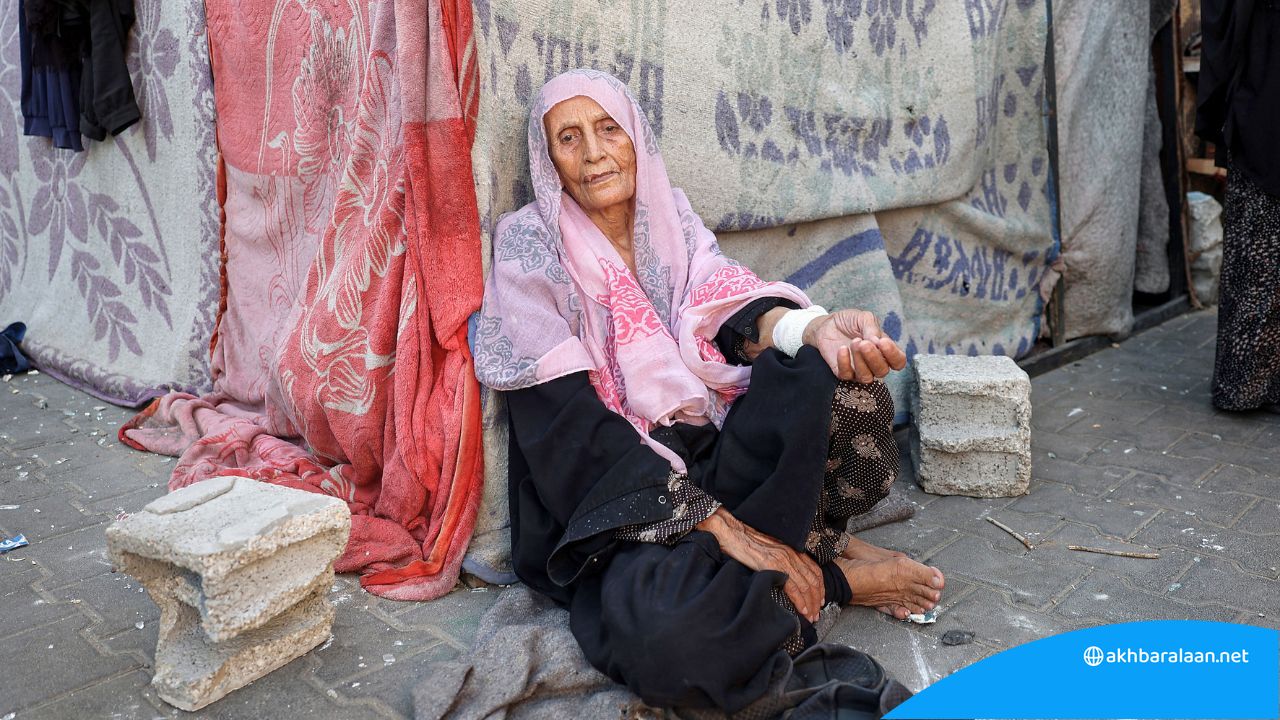Experts warn of a global health crisis caused by antibiotic resistance.. What is Gaza’s connection?
When doctors treat their patients, they need to OptionsBut in Gaza, they have no choice. Amid a severe shortage of medicines, drug-resistant infections are forcing doctors to amputate the limbs of wounded children to save their lives.
After 11 months of Israeli bombardment, Gaza has become a breeding ground for antibiotic-resistant bacteria. And its spread from Gaza and other war zones like Ukraine to neighboring regions looks set to only exacerbate the growing antimicrobial resistance crisis, which experts fear could be among the biggest public health emergencies of the coming years.
“I see everything leading to a catastrophic rise in antibiotic resistance in Gaza, and it will certainly spread to hospitals in the region,” antimicrobial resistance specialist Hanan Balkhy, the WHO’s regional director for the Eastern Mediterranean, told Politico.

Balkhi, who recently returned from a visit to, added: Gaza To monitor the health crisis: “In a short time, if not now, the problem will be in Europe, in the United States, in the East and the South. It will be everywhere.”
The discovery of penicillin in 1928 changed medicine, unleashing a wave of new antibiotics that dramatically improved our ability to fight everyday infections. But the overuse and misuse of these drugs, combined with the collapse of antibiotic discovery, allowed bacteria to catch the wave and become resistant.
In 2019, drug-resistant infections contributed to 5 million deaths worldwide and were directly responsible for 1.3 million. In a worst-case scenario, humanity could be headed back to the pre-penicillin era.
World leaders will meet at the United Nations in New York this month in search of agreement on how to deal with the problem. So far, early progress has been tempered, while wars in Gaza and Ukraine continue to exacerbate the problem.
perfect storm
War is known to increase the risk of bacteria developing drug resistance, but scientists are still learning exactly how and to what extent this happens.
First, there are the wounds: “Imagine pulling a little body out from under a destroyed building with all this cement, and you’re pulling this child out… bones sticking out of the skin, crushed into little pieces,” Balkhi said.
Then there’s the sewage: The streets are filled with human and animal waste; “the fermented smell in the air,” Balkhi said. She said she’s never seen a place more conducive to the spread of drug-resistant bacteria than Gaza.
Emerging research on the effects of concentrated heavy metals on drug resistance has also shown that heavy metals are toxic to bacteria – but as with antibiotics, germs can adapt. Some research suggests that by becoming resistant to heavy metals, bacteria can protect themselves from antibiotics as well.
Antoine Abou Fayed, a microbiologist at the American University of Beirut, told Politico he is concerned that heavy metals from bombs and destroyed buildings, including lead and zinc, could lead to drug resistance in Gaza.

Faced with a flood of infections, doctors have almost nothing to treat them — no reliable access to tests, labs or basic medicines — making drug resistance a more likely outcome, said Samir Sah, director of medical assistance programs for Palestinians.
“The shortage of medicines is a contributing factor to antimicrobial resistance because it can lead to inappropriate use of medicines and make it difficult to complete a course of antibiotics,” Sah said. “This is exacerbated by the fact that people are displaced and face daily Israeli military bombardment across Gaza, making it difficult or even impossible to follow up on patients.”
Gaza may be the world’s most dangerous breeding ground for drug-resistant bacteria, but it’s not the only one, Balkhi said — conditions in Sudan aren’t much better, while in Ukraine, antimicrobial resistance was already a major problem before Russia invaded in 2022.
Worst public health outcome
Drug resistance could be one of the worst public health consequences of the Ukraine war, said Dmitry Skirhiko, a general practitioner in Kyiv who promotes greater awareness of the dangers of antibiotic misuse.
Not only are there more infections — among wounded soldiers and civilians, and in crowded, poorly ventilated shelters — but it is also harder to regulate the sale of antibiotics, he said.
Some pharmacies only do superficial checks to see if a doctor has prescribed antibiotics to patients — not new in Ukraine, but “a really big problem” nonetheless, Skerheko said.
In contrast to Gaza, Ukraine’s health infrastructure has not been largely destroyed, and before the war the Ukrainian government had improved the country’s testing capabilities, said Jarno Habicht, the World Health Organization’s representative in Ukraine. The country now has 100 laboratories monitoring drug-resistant bacteria, up from just three in 2017, Habicht said.

However, Ukraine’s hospitals are under pressure and health workers are having to make quick decisions. If wounded patients don’t improve after starting a course of antibiotics, doctors may switch them to another drug, he explained. This process is usually tightly controlled, but in wartime best practices aren’t always possible.
A doctor’s primary job is to save a patient’s life — and they may not have five or six days to wait for lab results before making a decision on treatment, Habicht said.
In Gaza, meanwhile, there are no labs left: whatever antimicrobial resistance testing is happening is happening in other facilities. According to Abu Fayed, it is impossible to calculate the spread of drug-resistant bacteria in Gaza because of the level of destruction.
“Right now, we don’t have concrete evidence because everything is destroyed in Gaza… nobody is testing,” he said, adding that everything known about antimicrobial resistance and war zones suggests it is only a matter of time before the world pays “a heavy price.”
“People don’t understand that this is not something that will only affect Gaza. It will affect the world, and Israel will be the first party affected by the spillover.”
Even amid the fog of war, antimicrobial resistance experts like Balkhi are convinced that a global health crisis is coming. “There is no doubt, not one iota, not even 0.001 percent, that antimicrobial resistance is out there,” she said.
“Gaza is likely to be home to many resistant bacteria that will spread throughout the world,” she added.




